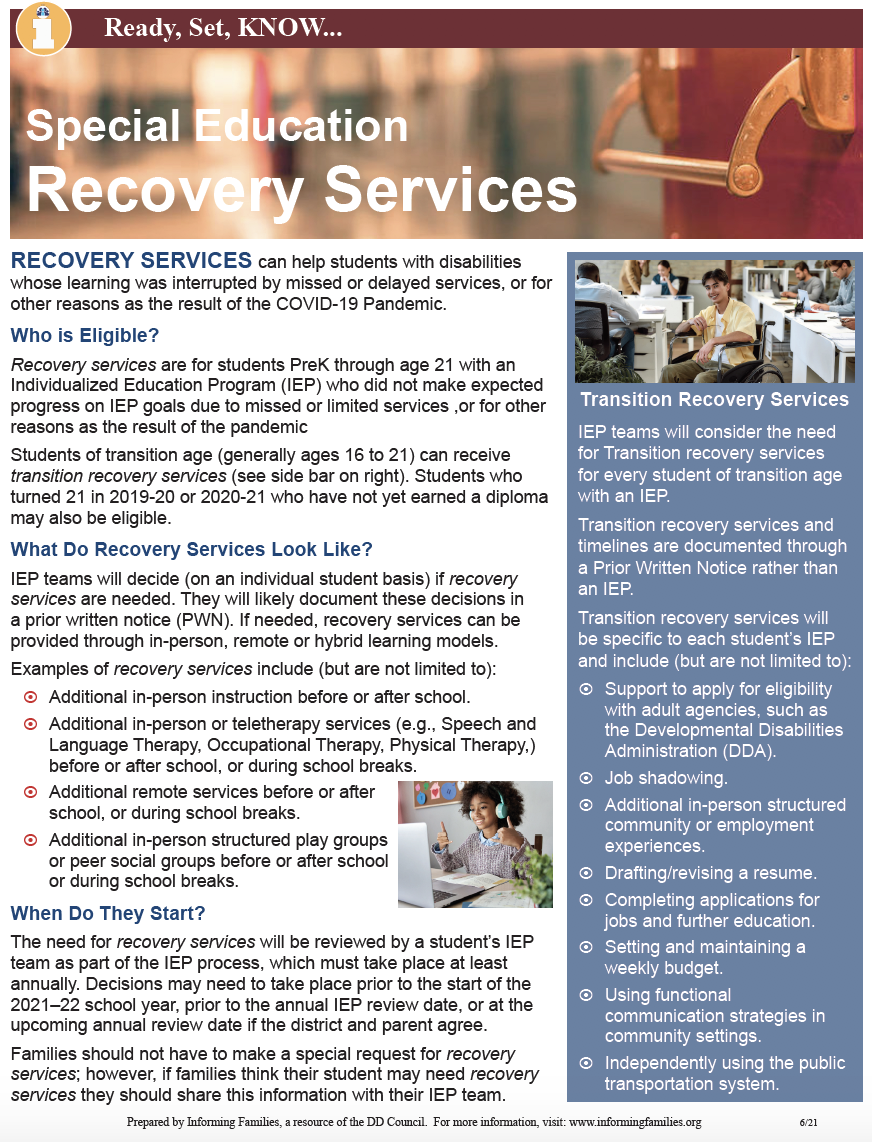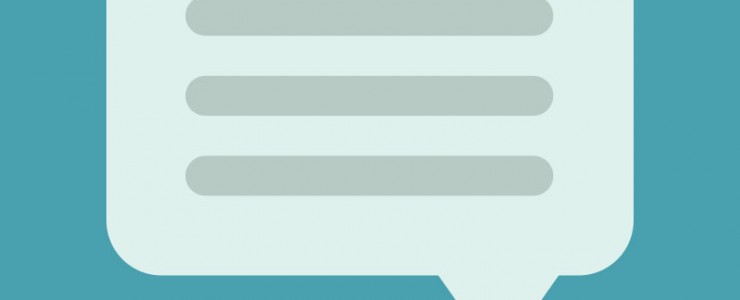Special Education Recovery Services Explained
Recovery services can help students with disabilities whose learning was interrupted by missed or delayed services, or for other reasons as the result of the COVID-19 Pandemic.
Who is Eligible?
Recovery services are for students PreK through age 21 with an Individualized Education Program (IEP) who did not make expected progress on IEP goals due to missed or limited services ,or for other reasons as the result of the pandemic
Students of transition age (generally ages 16 to 21) can receive transition recovery services (see below for examples). Students who turned 21 in 2019-20 or 2020-21 who have not yet earned a diploma may also be eligible.
What Do Recovery Services Look Like?
IEP teams will decide (on an individual student basis) if recovery services are needed. They will likely document these decisions in a prior written notice (PWN). If needed, recovery services can be provided through in-person, remote or hybrid learning models.
Examples of recovery services include (but are not limited to):
- Additional in-person instruction before or after school.
Additional in-person or teletherapy services (e.g., Speech and Language Therapy, Occupational Therapy, Physical Therapy,) before or after school, or during school breaks.
Additional remote services before or after school, or during school breaks.
Additional in-person structured play groups or peer social groups before or after school or during school breaks.
When Do They Start?
The need for recovery services will be reviewed by a student’s IEP team as part of the IEP process, which must take place at least annually. Decisions may need to take place prior to the start of the 2021–22 school year, prior to the annual IEP review date, or at the upcoming annual review date if the district and parent agree.
Families should not have to make a special request for recovery services; however, if families think their student may need recovery services they should share this information with their IEP team.
Transition Recovery Services
IEP teams will consider the need for Transition recovery services for every student of transition age with an IEP. Transition recovery services and timelines are documented through a Prior Written Notice rather than an IEP.
Transition recovery services will be specific to each student’s IEP and include (but are not limited to):
- Support to apply for eligibility with adult agencies, such as the Developmental Disabilities Administration (DDA).
- Job shadowing.
- Additional in-person structured community or employment experiences.
- Drafting/revising a resume.
- Completing applications for jobs and further education.
- Setting and maintaining a weekly budget.
- Using functional communication strategies in community settings.
- Independently using the public transportation system.







